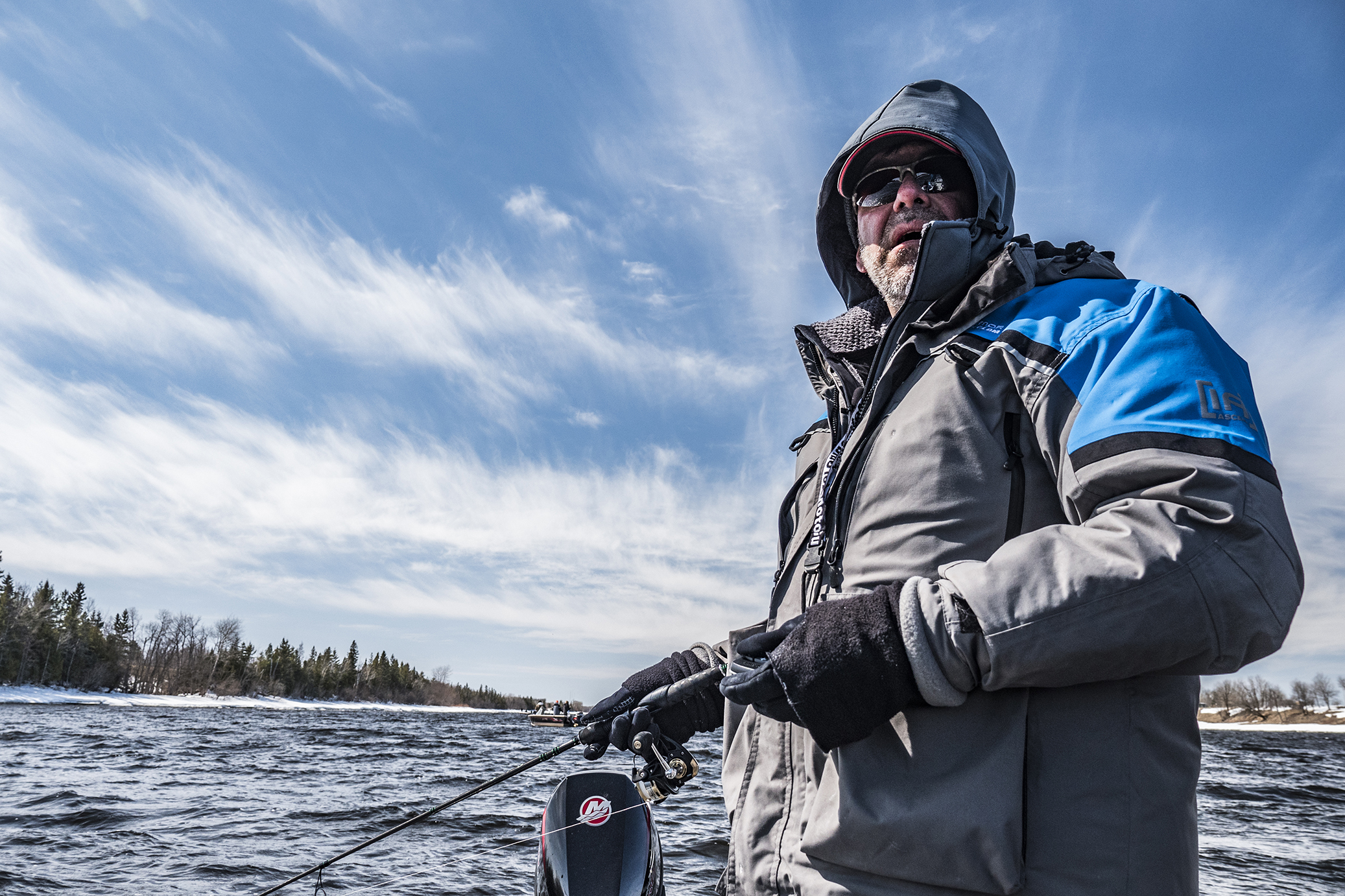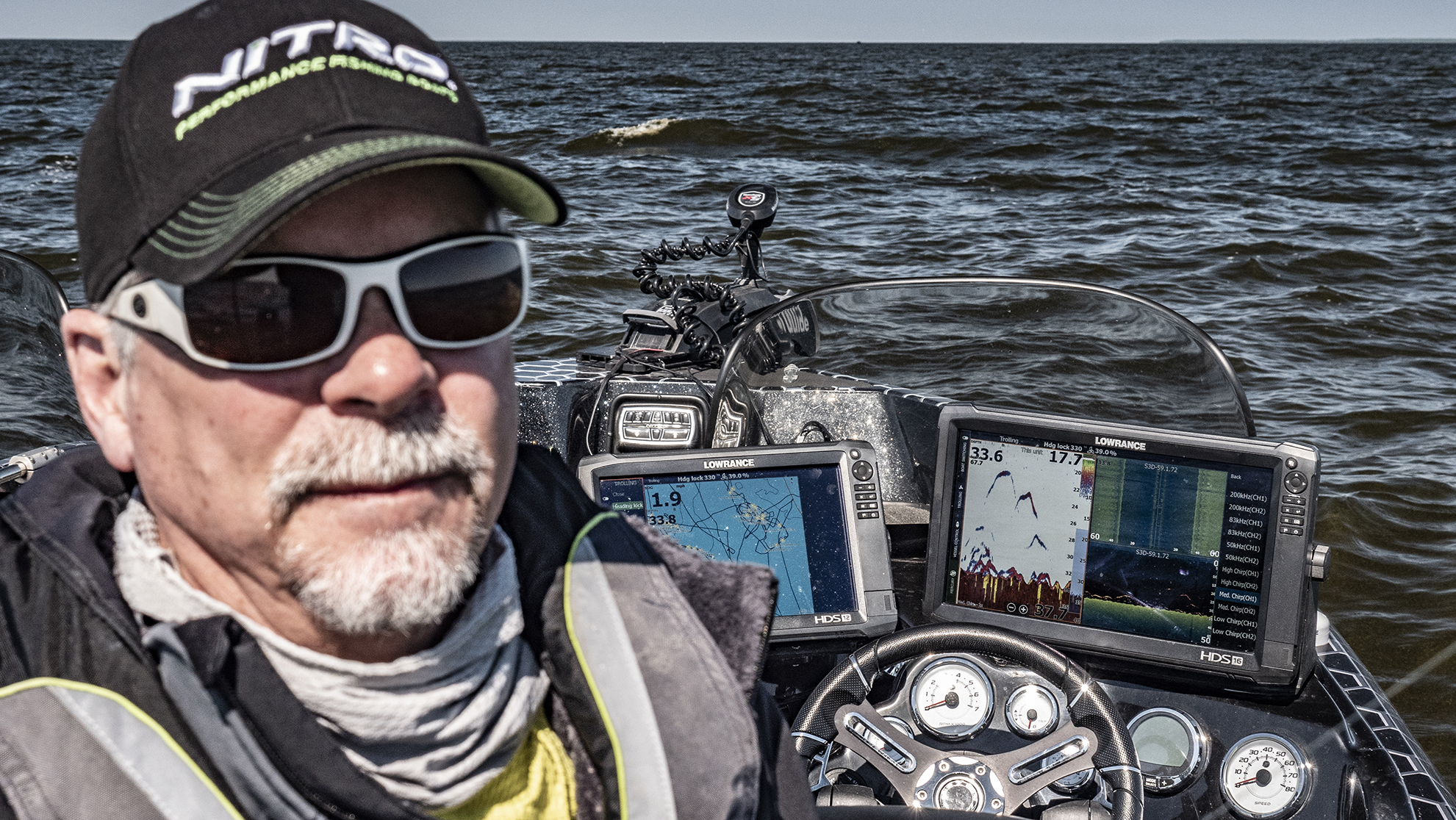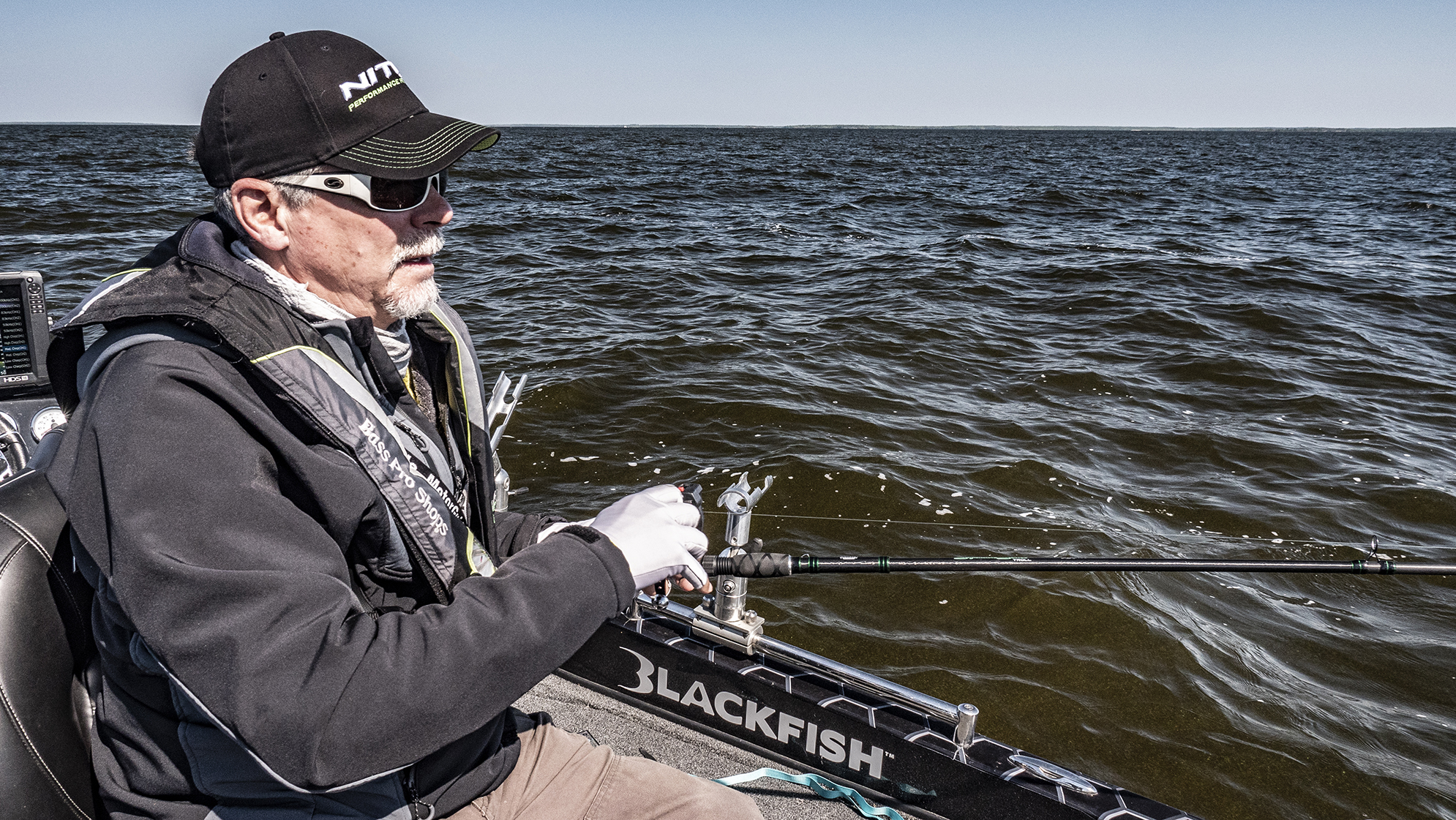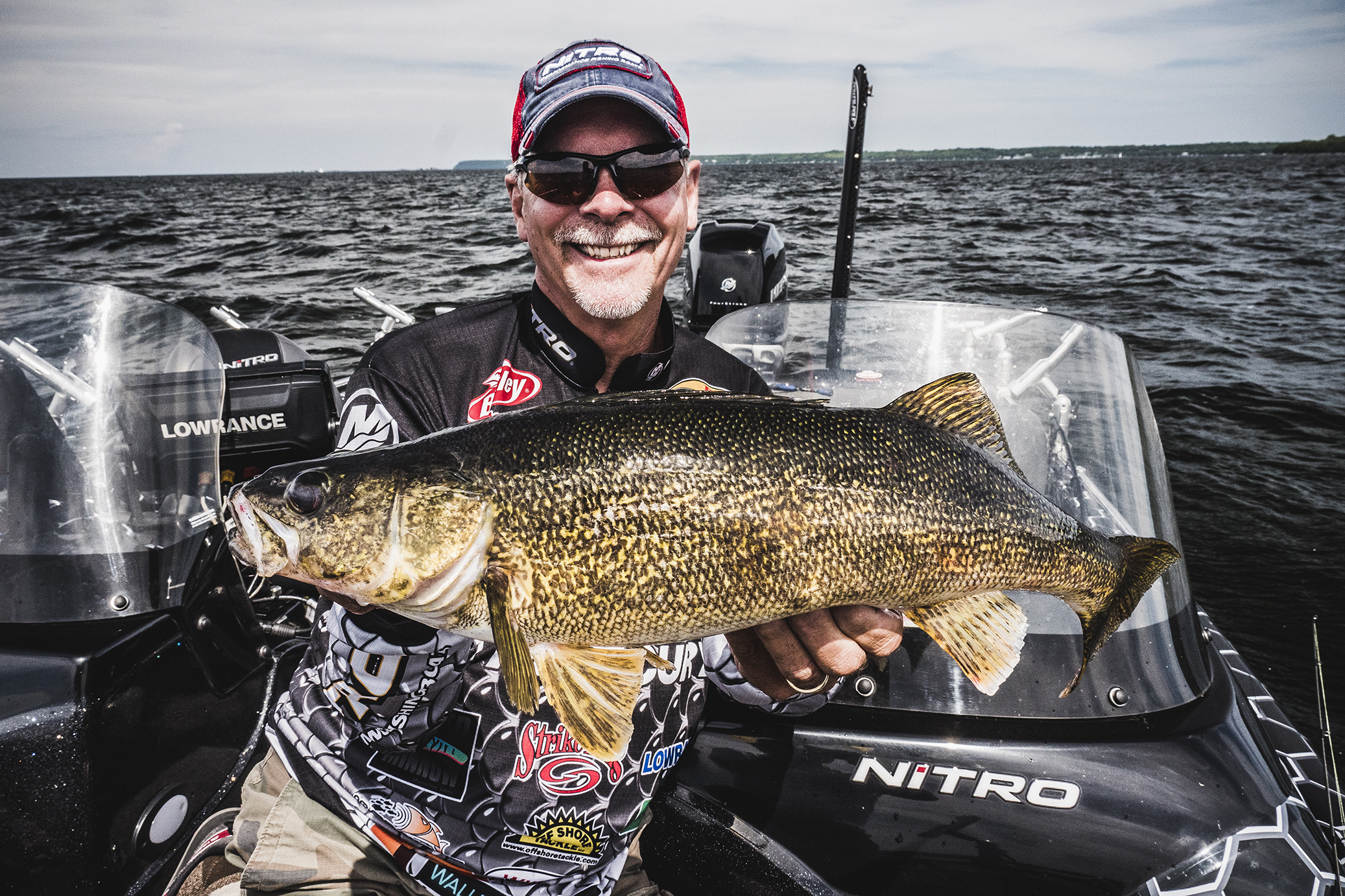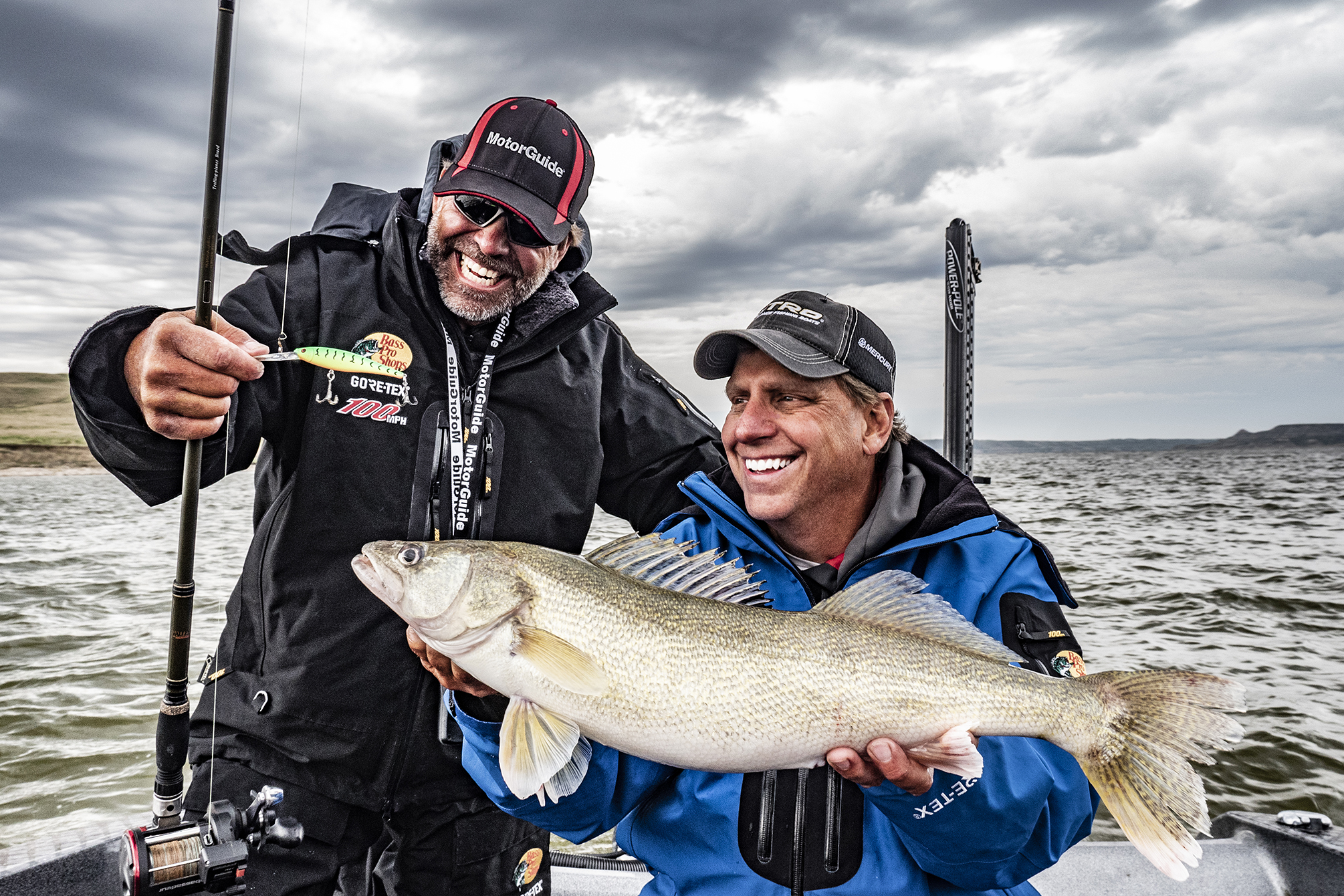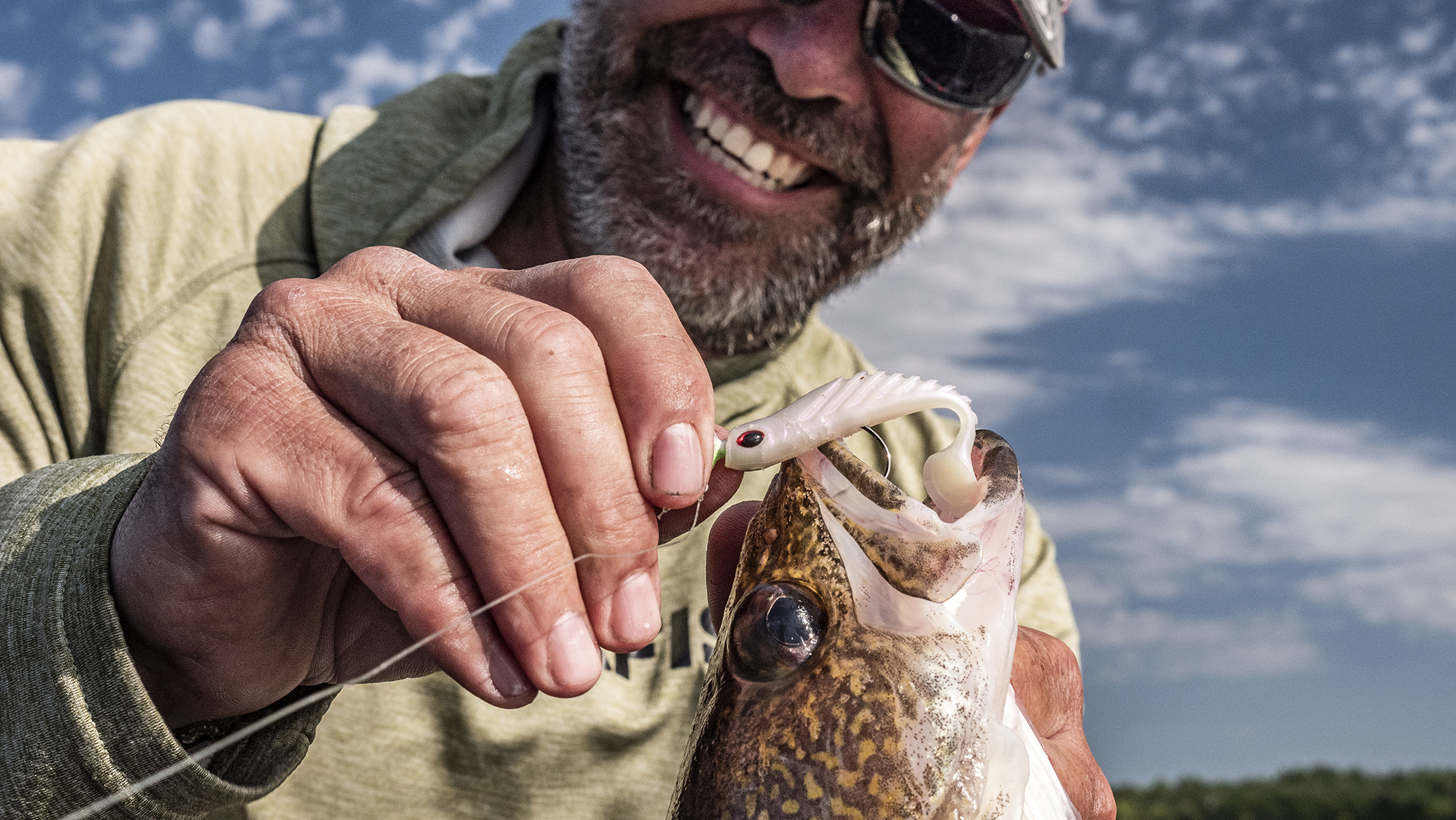
This article originally appeared in Minnesota Outdoor News.
I’m old school. I started muskie fishing before the internet, before muskie chat rooms, before muskie and pike magazines, before videos. Before big money cash tournaments. "Old school" means I was chasing something more important than a fish … I was chasing a mystique. And it was a very private pursuit. I didn’t talk to other muskie anglers. I didn’t even want to know any. I read a couple issues of Fishing Facts, bought some Spoonplugs … and headed out to fish some weedlines. I’d figure it out. And eventually I did. I couldn’t conceive of a day when muskie fishing would involve competition-with 60 to 100 boats blasting around the lake–with $10,000 (or is it $100,000?) at stake.
Well, obviously, I’m a lot less private and secretive now. If the present glut of muskie information available is a problem, then I am part of the problem. Writing and editing for Esox Angler magazine, contributing to this website … I’m definitely part of the problem.
But this gives me a chance to comment on trends that I think are less benign than the evolution of our sport from old school (secretive and private) to the information age.
I am concerned. And I’m far from alone. My concern is that an unregulated proliferation of big money muskie tournaments will do more than just change our sport-change it from my antiquated notions of mystique and secrecy to something else-but will, in fact, damage the sport-the fishery-irreparably.
I don’t want to sound sanctimonious here. Full disclosure: I did fish the WPMA for two seasons in the 1980s. I’ve made mistakes.
For me, there is a single, fundamental problem. Unlike the way it works with a friendly honor-system Muskies Inc. outing-when big money is on the line, caught fish must be witnessed, measured, judged. Muskies, which sure look big and tough and toothy, are actually extremely vulnerable to delayed mortality as a result of handling and stress, especially in warm summer water. A large muskie that battles the angler and must then be restrained in a net or held by hand against the side of the boat in 3-foot waves awaiting a judge boat is likely to become a dead fish. Soon. We can’t afford to lose them this way. Muskies are very low-density population animals that take years to grow to the size that we are interested in.
Some years ago, a good friend and legendary muskie man, Dick Pearson made the following comments in the Millennium issue of In-Fisherman magazine:
"The problem I believe, is that muskies aren’t largemouth bass. Muskies are a resource so limited in most waters as to be more potentially vulnerable to the pressure of a tournament crowd. The best interests of the fish more likely will suffer when $20,000 is on the line. Most anglers I know think it isn’t right to place the interests of the limited number of tournament anglers (maybe 200 total) at the same level as the much larger group (perhaps 200,000) who depend on the health of individual fisheries for their fishing enjoyment. "
"In some areas, we already have enough trouble trying to correct mistaken ideas about how muskies affect other species. Winning those battles will be even more difficult if the public also has to tolerate muskie anglers running around in rockets trying to win money. "
"Finally, many anglers worry that such a small group of anglers is but a tiny part of what the much larger group of muskie anglers are really all about. They worry that perceptions of who muskie fishermen are will be based on public perceptions of this small group of anglers who are a much different breed from most muskie anglers."
Dick’s words are valid today.
 Getting ready to write this, I talked to a few other guys.
Getting ready to write this, I talked to a few other guys.
John Skarie pointed out that "sure, tournaments are popping up now, after tens of thousands of dollars and hundreds of man-hours have been invested (by Muskies Inc and the DNR) in stocking and creating new muskie lakes-lakes that are now trophy fisheries. And our natural waters-Leech, Cass, Winnie etc., they are the genetic cornerstone of our whole muskie program. If we lose the genetics, someday it will haunt us." John hopes that regulations will reflect the increase in pressure and be proactive in protecting the fish rather than reactive after we lose them. "If we don’t wake up and protect what we have, all that hard work will be undone."
Pete Maina, after echoing my concerns about handling stress and delayed mortality, also expressed his concerns about what he called the "social aspects of fisheries management-as it applies to muskie management and the introduction of muskies into new fisheries."
Pete’s concern is that "muskies already are viewed as the cause or problem for real or perceived declines in the population or catchability of other, smaller, often more popular, species (namely walleyes, bass, and panfish). Esox species already have a bad name regarding the social aspect of fisheries management. Even though many fisheries experts and at least one study point out that in the majority of cases there is no connection between fallen populations or catchability of other species, there are many who blame muskies. Groups like ‘No More Muskies’ is a prime example of the folks who already don’t like our favorite fish. Right or wrong, the reality is the social aspects (public opinion) of fisheries management usually weigh heavier these days on final management decisions than strictly biological aspects."
"Tournaments are only enjoyed by those in them and the folks directly associated. Other water users (angling and recreational), tend to not like tournaments at all, due to crowding and at times more aggressive behavior by anglers (big equipment and big baits make this worse). Even muskie anglers that do fish tournaments, will avoid waters that have tournaments going on if they are not in them. The more often tournaments are held on a body of water-the more the complaints."
 Pete continues, "Muskies are a completely different ballgame, socially, than any other popular tournament species. I’ve heard many examples of folks becoming mad, or madder, at muskies and muskie anglers in general due to tournaments being held on waters they happen to be fishing, especially if they were unaware that these events were coinciding with their allotted time on that water. My concern is that too many muskie tournaments will increase the number of water users who are ‘socially’ against muskies and muskie anglers. While some folks get upset over bass and walleye tournaments, it never seems to get them to rally against the fish-against the walleyes or bass. With muskies, it’s very different."
Pete continues, "Muskies are a completely different ballgame, socially, than any other popular tournament species. I’ve heard many examples of folks becoming mad, or madder, at muskies and muskie anglers in general due to tournaments being held on waters they happen to be fishing, especially if they were unaware that these events were coinciding with their allotted time on that water. My concern is that too many muskie tournaments will increase the number of water users who are ‘socially’ against muskies and muskie anglers. While some folks get upset over bass and walleye tournaments, it never seems to get them to rally against the fish-against the walleyes or bass. With muskies, it’s very different."
At this point, Dick Pearson weighs in: "I couldn’t agree more. Nothing will likely play into the hands of hostile Lake Associations, ‘No More Muskies’, and other opponents of muskies more than tournaments. Lake associations already barely tolerate 10-15 muskie boats roaring around daily. Throw 60 boats on those lakes and our chances to get new muskie waters, resume stocking, etc. will suffer because of the social pressure."
"I’m beginning to wonder if it’s not time for the DNR, and perhaps the legislature, to review the underlying theories regarding tourneys. For instance, it’s often just assumed-and always argued by promoters-that tourneys are good for the local economy. I’m not sure at all about that. In fact, I suspect careful analysis may show the opposite. Many tourists stay away from lakes where tourneys are held because of the pressure and commotion. This is often repeat business, family or group type business that really matters in the long run to a healthy economy. A significant percentage of that business may never return after staying in alternative areas. The tourney business, on the other hand, is transitory and likely has less beneficial economic impact. I understand many in the Lake Vermilion area feel that way, as do many in the Leech-Cass area as well. As Bob Strand recently told me, what really matters to a healthy economy is a healthy fishery."
"One last point-the impact is greater than just the days of the tournament. With big money at stake, there are also days of pre-fishing involved. 60 boats pre-fishing your lake is really no different than 60 boats fishing in a tourney. Same pressure on the resource, same monopolization, same chagrin from lake associations…"
Finally, Rob Kimm, echoing Pete’s comments and summarizing our political concerns: "There is a risk that tournaments will be another reason for management of the muskie fishery to become politicized. We came perilously close to this once before with ‘No More Muskies’-to the point where a bill to end muskie stocking on a particular lake was introduced in the Minnesota Senate. Public relations is right up there with habitat and water quality concerns on the list of challenges to Minnesota’s muskie fishery, and the effect tournaments can have on the public perception of muskies and muskie anglers is far out of proportion to the benefit to the resource, to say nothing of the sport as a whole."
Enough. You get the idea.
We’re just hoping that the DNR will realize that there are a lot of us old school types (young and old) out here … plus, for every one of us, a thousand tax-paying (and resort supporting) anglers and recreational water users who believe there should be strict regulations and limitations on big-money muskie tournaments.
Catch a nice one and let it go. Let them all go.

